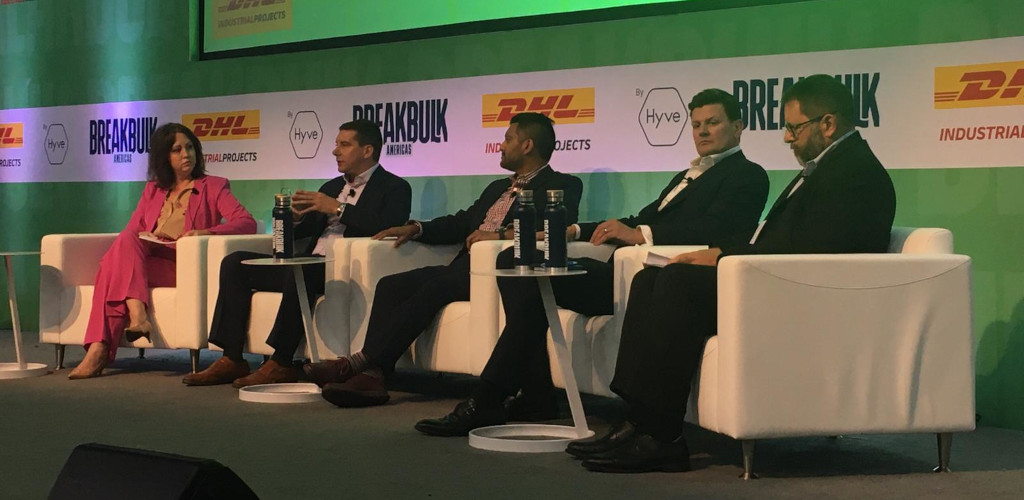Scarcity of Assets and Talent Hinder Post-Pandemic Recovery
 By Luke King
By Luke King
Breakbulk Americas 2023: “We will rise to the occasion” was the optimistic consensus of speakers on a Project Outlook – Are We Ready? panel session, who also acknowledged that the industry is not yet fully ready for an anticipated uptick in business.
Prior to the panel, Amanda Duhon, regional director at the Energy Industries Council, said there were “opportunities in abundance”, despite a slowdown in new oil and gas announcements.
She pointed to some 26 new nuclear projects in the works, as well as a slew of renewables activity, particularly on the U.S. East Coast.
For industry veteran John Hark, North America regional director for Bertling Logistics, staff issues pose a threat to the post-pandemic recovery. “We see a shortage of staff, as well as large salary increases caused by inflation and competition.”
Concurring with this sentiment was Brian Putallaz, senior commodity manager, Global Shippers Association, who was concerned that “10,000 baby boomers are turning 65 every day – and you can’t fix that overnight, even with AI and tech”.
An ongoing pinch point in the supply chain remains the availability (or otherwise) of barges – a situation exacerbated by the Jones Act, which requires that domestic shipping be conducted only by U.S.-flagged vessels.
Panelist Edward Talbot, managing director for Roll Group in the Americas, expected the situation to remain difficult for the foreseeable future. “Barges are being booked even before the project starts, which reduces availability further and pushes prices up,” he noted.
Milind Balaji, director of global distribution and services at Georgia-Pacific, an importer and shipper of breakbulk and project cargo, pointed to how a lack of investment in critical infrastructure, especially ports, was placing “huge burdens” on supply chains.
Addressing the issue of staffing, Balaji spoke of the industry’s “perception problem” among younger people. “Some people look at us and think our work is archaic – though nothing can be further from the truth.”
On terms and conditions, Hark welcomed some positive developments. “We are starting to see contracts that are more fit for purpose, and not so many that cause us indigestion. But there are still issues – things like 180-day payment terms, and that’s tough to manage.”
Putallaz was concerned that, as stability returns following the pandemic, people would “go back to thinking that logistics is cheap and easy again”. He also spoke of the “paradox” between OEMs in the renewables space who “aren’t making money” and “the fossil fuel industry, which is making record profits” – a situation that he said could undermine the energy transition.
Closing the session, Hark concluded: “We are ready, we will rise to the challenge, but I tell everybody visiting Breakbulk – go and talk to the students, because we need them working with us.”
Watch our interviews with panelists in the Breakbulk Studios.
